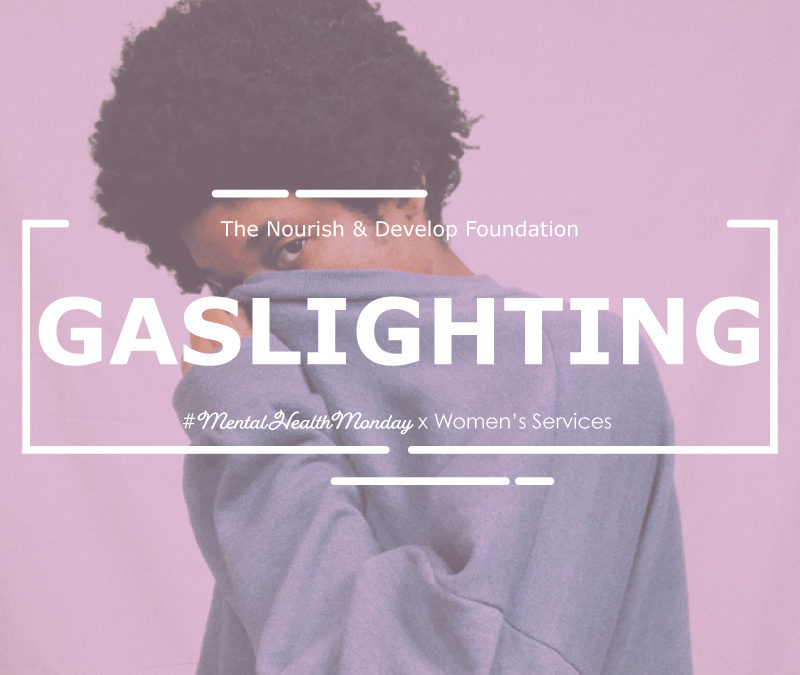The term gaslighting derived from the 1938 play, Gas Light,
which later turned into film adaptations, where the protagonist is manipulated by her husband into losing her sense of reality to his benefit. Today, we recognize gaslighting as a form of emotional abuse that causes someone to question their own thoughts, perceptions, and sanity. This can start in subtle ways, but over time has devastating consequences, resulting in estranged relationships, loss of identity, and development of mental illness. It is important to understand that a person experiencing gaslighting is not at fault in any way for receiving such treatment and instead it occurs due to the perpetrator’s desire for power and control. This week we will review the hallmark warning signs, effects, and what to do if you are being gaslighted to aid in effective safety planning and to promote well-being.
Signs that you are experiencing gaslighting:
- You feel vulnerable and insecure
- You feel alone and powerless
- You spend a lot of time apologizing
- You second guess and doubt yourself
- You feel isolated from family and friends
- You make excuses for the other person’s behaviour
- You don’t feel like yourself
- You find it difficult to make decisions, even simple ones
- You feel like something is wrong, but you don’t know what
- You wonder if you are being too sensitive
- You blame yourself when anything goes wrong
- You are always unsuccessfully trying to please the other person
Someone who gaslights might:
- Deny they have ever said something even if you have proof they did
- “What are you talking about? That never happened!”
- Falsely tell you people are talking about you behind your back
- “Your friends think you’re selfish and lazy.”
- Spread lies and rumours about you to others
- “You can’t believe anything she says, she’s crazy!”
- Trivialize your feelings and emotions
- “Calm down, you’re overreacting.”
- Shift the blame for their behaviour onto you
- “It’s your fault, you’re the one who’s always twisting things.”
- Become compassionate when they are called out
- “You know how much I love you, I wouldn’t have done that to you on purpose!”
- Use what you care about most against you
- “You’re not a good mother, you shouldn’t have had kids.”
Sources
https://www.healthline.com/health/gaslighting#examples
https://www.thehotline.org/resources/what-is-gaslighting/
https://www.verywellmind.com/is-someone-gaslighting-you-4147470
https://canadianwomen.org/blog/gaslighting-how-to-recognize-this-form-of-emotional-abuse/
https://www.talkspace.com/blog/gaslighting-in-relationships-signs-how-to-spot/
responding to gaslighting:
Self-educate: the first step to dealing with gaslighting is to learn about what gaslighting is and what some of the manipulative tactics used are. If you find you are in a relationship where this tactic is being used against you, your partner may require professional help in order to stop. Gaslighting may be a sign of a larger problem and abuse can escalate without professional help and a willingness on the part of the abuser to get the help they need.
Reach out: if you are feeling doubtful, confide in others for a reality check. They may be able to offer perspective on specific events, who you are as a person, what they think of you, and how they feel about the person gaslighting you. It is important to surround yourself with supportive people. Abusers often try to isolate their victims and your best defense is to be around people who love and encourage you.
Document: try keep a record of your account of events that have happened through journaling a summary of events, saving screenshots of conversations, taking photos of damaged property for evidence, etc. If someone tells you it didn’t happen, you will be reassured to know that it did. It is also helpful to track examples of when you were gaslighted to establish a pattern of behaviour.
Don’t engage: show you will not tolerate their behaviour. Stand your ground by telling them you know your truth and it is not up for debate. You can say you hear them but that is not your experience, that you remember things differently, and if they continue to say otherwise you will step away from the conversation. Be willing to walk away from abusive relationships if your partner refuses to get help.
Trust your gut: listen to what your instinct is telling you. If you feel like something is off, it probably is. When retrieving your memory, rely on your senses, what you saw, what you heard, and how you felt. Believing yourself is like a muscle, the more you practice the stronger you will become.



